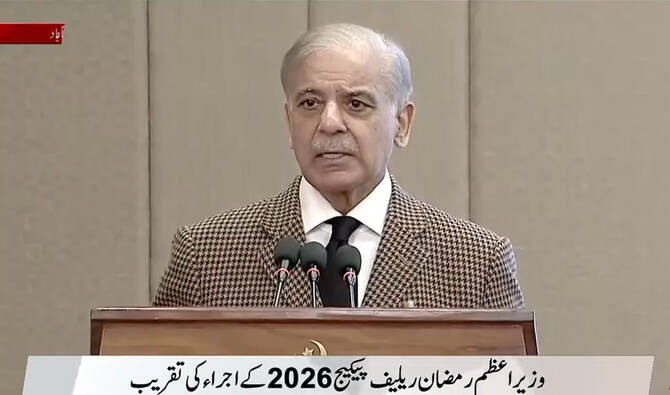ISLAMABAD: A neutral expert from the World Bank will take up on Wednesday the legal battle between Islamabad and New Delhi at The Hague over designs of two hydropower projects being built by India, Pakistani media reported on Monday.
The South Asian neighbors have been arguing over hydroelectric projects on the shared Indus River and its tributaries for decades, with Pakistan complaining that India’s planned hydropower dams will cut flows on the river which feeds 80 percent of its irrigated agriculture.
Pakistan, a lower riparian state, is specifically opposed to India’s construction of the 330-megawatt Kishanganga Hydroelectric Project on River Jhelum and 850-megawatt Ratle Hydroelectric Project on River Chenab in the disputed Himalayan region of Kashmir. India says the construction of the two projects is allowed by the Indus Water Treaty signed between the two countries in 1960.
“Pakistan’s delegation comprising Pakistan’s commissioner of Indus Waters, top officials of the Attorney General’s Office, and a team of international lawyers hired by the Government of Pakistan would advocate the country’s case for justice,” a top official at the Attorney General’s office told The News, one of Pakistan’s largest English-Language newspapers.
The Indus Waters Treaty provides two forums for the settlement of disputes, the Court of Arbitration which addresses legal, technical and systemic issues, and a Neutral Expert who can only adjudicate on technical issues.
Earlier this year, the Permanent Court of Arbitration (PCA) at The Hague rejected India’s objections to a Pakistan-initiated procedure over water use in the Indus River basin, reopening a procedure that had been blocked for many years.
Pakistan sought resolution through PCA arbitration proceedings in 2016, prompting India to request that the World Bank appoint a neutral expert under the terms of the treaty. India has boycotted The Hague court proceedings and questioned the competence of the court.
“In a unanimous decision, which is binding on the Parties and without appeal, the Court rejected each of the objections raised by India and determined that the Court is competent to consider and determine the disputes set forth in Pakistan’s Request for Arbitration,” the court said in a statement after its ruling earlier this year.
It gave no details on when and how the case will continue, but added that it will address the interpretation and application of the bilateral Indus Water Treaty, notably the provisions on hydro-electric projects, as well as the legal effect of past decisions of dispute resolution bodies under the Treaty.
Pakistan has also been consistently raising its concerns in the Permanent Indus Commission since 2006 for Kishanganga and 2012 for the Ratle project. Pakistan also sought a resolution to the dispute in government level talks held in New Delhi in July 2015.
Pakistan has raised three objections to the Kishenganga project’s design, including that the project pond is 7.5 million cubic meters, which should be one million cubic meters. Pakistan also wants India to raise intake by up to 1-4 meters and spillways up to nine meters high.
On the issue of the Ratle Hydropower plant, Islamabad wants India to maintain the freeboard at one meter whereas India wants to keep it at two meters. In addition, India wants to keep the pond of 24 million cubic meters, but Pakistan wants it to be restricted to eight million cubic meters. Pakistan also wants the intake of the project to be raised by up to 8.8 meters and its spillways raised by up to 20 meters.












